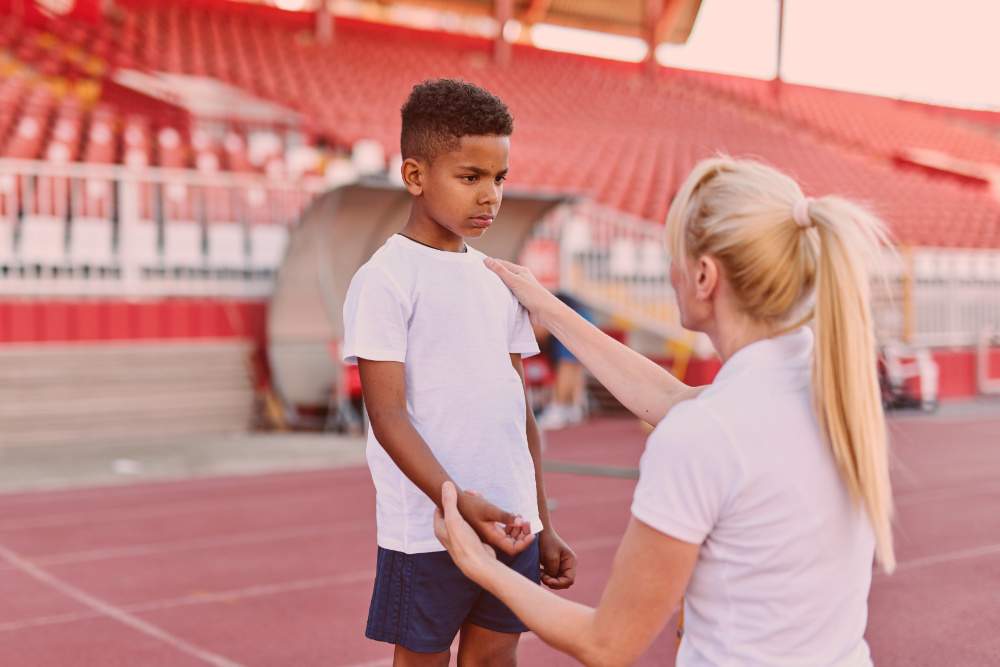Helping your autistic child in Melbourne get active is important, but finding the right personal trainer can be daunting. You want someone who truly understands your child’s needs and can build strength, confidence, and lasting healthy habits—step by step.
What Does a Personal Trainer Do for Autistic Children?
A personal trainer works one-on-one to develop movement skills, strength, and routines that match your child’s abilities. For autistic children, a great trainer focuses on progress at your child’s pace, adapts exercises to sensory needs, and builds confidence throughout the process.
Trainer Role & Benefits
- Building basic movement safely
- Improving balance and coordination
- Developing strength step-by-step
- Creating predictable exercise routines to reduce anxiety
- Teaching skills for independent exercise
Research shows regular physical activity helps autistic children improve motor skills and decrease anxiety. The most effective trainers consider sensory sensitivities and adapt every session to communication preferences.
How Much Does Personal Training Cost in Melbourne?
Personal training for children in Melbourne usually costs $50–$120 per 30-minute session. Most trainers suggest starting with 2–3 sessions per week, depending on your child’s needs.
Cost Breakdown
- Standard gym trainer: $50–$70 per session
- Specialist disability trainer: $80–$100 per session
- Mobile trainer at home: $90–$120 per session
Package deals can save $50–$100 over 10 sessions. NDIS funding may help cover these costs if sessions support skill building or independence under Capacity Building supports.
9 Steps To Shed 5-10kg In 6 Weeks
Includes an exercise plan, nutrition plan, and 20+ tips and tricks.
Download FreeTrainer Qualifications: What to Look For
Choose a trainer with certification, experience, and understanding of disability support. The best trainers connect with children at their level and know how to build trust and progress slowly. For more details, see NDIS Personal Trainer Salary.
Required Qualifications
- Certificate III or IV in Fitness
- First Aid & CPR
- Working with Children Check (Victoria)
- Experience or training in disability support
- NDIS registered (if using NDIS funding)
Always ask about prior experience with autistic children, and choose someone who is patient and flexible.
How Do You Know If a Trainer Is Right?
Most trainers offer trial sessions. Watch how your child responds and consider the trainer’s approach.
Positive Signs
- Trainer speaks directly and patiently to your child
- Asks about interests and sensory preferences
- Shows and explains exercises clearly
- Adapts quickly if something isn’t working
- Your child feels engaged and comfortable
Red flags include rushing, frustration, or ignoring communication attempts.
Can Training Help with Weight Management?
Yes, but movement is only half the story. Trainers can teach calorie-burning exercises, but nutrition is key to lasting weight management—especially with autistic children who may have food sensitivities.
Sports nutritionists in the Elwood area typically charge $120–$180 for an initial session. Like training, NDIS can often help cover the costs when included in your plan.
What Should Sessions Look Like?
Routine, predictability, and clear structure help autistic children feel safe and confident. Here’s a typical 30-minute session format:
Session Structure
- 5 mins: Familiar warm-up movements
- 15 mins: Core exercises (strength or cardio)
- 5 mins: Skill practice or fun games
- 5 mins: Cool-down and stretching
Visual schedules, consistent instructions, and sensory breaks are important for engagement and comfort.
Where Should Training Happen?
Options include gym, home, or outdoors—each with its pros and costs.
Location Choices
- Gym ($50–$80): Best during quiet morning times
- Home ($90–$120): Familiar, controlled environment
- Outdoors ($60–$90): Parks or beaches like Elwood are excellent
Many families prefer home or outdoor sessions for comfort and focus.
How Quickly Will You See Results?
Most children show improvement within 6–8 weeks, but every child’s timeline is unique.
Progress Timeline
- Balance & coordination: 4–6 weeks
- Strength: 6–8 weeks
- Confidence: 8–12 weeks
- Better sleep: 2–4 weeks
- Reduced anxiety: 8–10 weeks
Studies show regular exercise improves movement skills and reduces anxiety in autistic children—usually within 12 weeks.
The Role of Nutrition Support
Nutrition supports everything in training. A sports nutritionist helps create meal plans, address energy and protein needs, and work within sensory preferences.
Nutrition Support Benefits
- Meal plans for sensory preferences
- Managing energy for training
- Protein for muscle growth
- Addressing nutritional gaps
- Teaching healthy food choices
Pairing personal training with nutrition support helps families achieve the best weight balance and overall health.
Frequently Asked Questions
Can NDIS Fund Both Training and Nutrition?
Yes. Both can be covered under Capacity Building in your NDIS plan, especially when linked to independence and life skills. For more information on eligibility, check Can I claim a personal trainer under NDIS?.
How Do I Find Autism Trainers in Elwood?
Ask your paediatrician, OT, or local autism groups. Check the NDIS provider directory for registered trainers near you.
What If My Child Refuses to Exercise?
Start with activities they enjoy—like swimming or music. A good trainer builds from your child’s interests and makes movement fun and approachable.
Should Siblings Join?
For some children, a sibling’s presence helps. For others, 1:1 sessions work best. Trial sessions can help you decide what suits your child.
How Often Should We Train?
2–3 sessions per week is ideal for progress without overwhelm. Your trainer can adjust as needed.
Taking the Next Step
Finding the right support takes time. Book trial sessions with 2–3 trainers, and pair exercise with nutrition advice for the strongest results. Focus on healthy habits and confidence first—quick results are less important than lasting progress. With consistent support, your child can develop life-long skills and a positive relationship with movement and nutrition.


